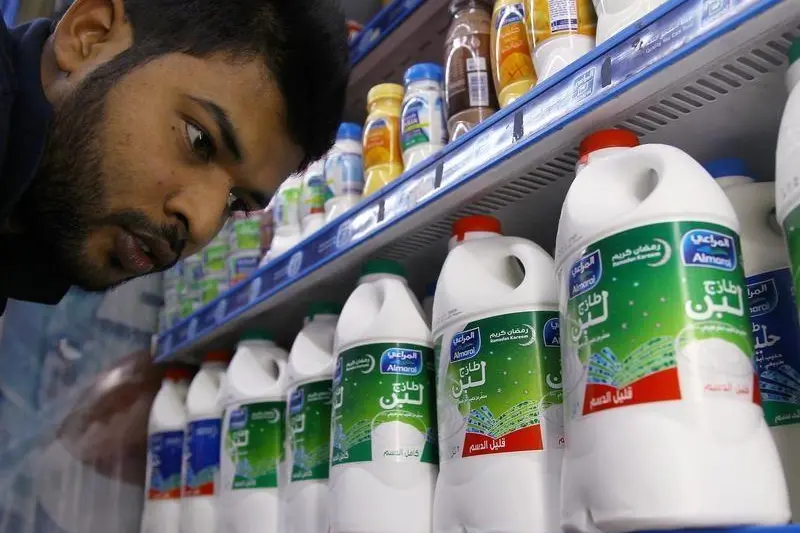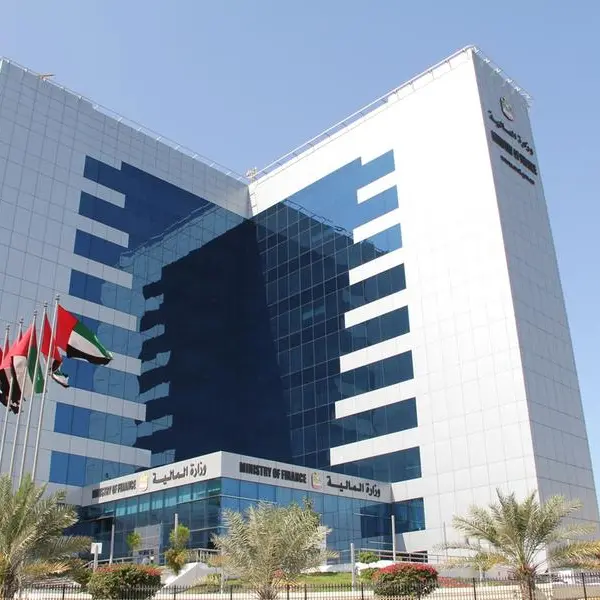PHOTO
Although the Organisation for Economic Co-operation and Development (OECD) found that Middle East countries are highly dependent on international markets for key staple food products, several food and beverage companies in the Middle East have invested billions of dollars in securing the region’s food supplies.
The COVID-19 outbreak that disrupted global supply chains amid travel and movement restrictions also saw regional governments implementing several initiatives such as vertical farms to advance food production by growing crops and rearing livestock locally.
However, despite the dual impact of the pandemic and a plunge in oil prices, which hurt the region’s consumer buying power and impacted the performance of several industries, the food and beverage (F&B) companies in the Mideast region significantly performed well compared to their peers in other emerging markets.
Here’s a look at last year’s performance of seven notable Middle East F&B companies that have a combined market cap of $28.8 billion as of May 4, 2021, and registered combined revenues of $11.1 billion
Almarai
Saudi Arabia
Revenues: $4.1B (7%)
Net income: $529M (9.5%)
Market cap: $14.6B
Almarai, a GCC-based food and beverage company reported revenues of $4.1 billion (SAR 15.4 billion) in 2020, a 7% increase compared to $3.8 billion (SAR 14.4 billion) during the previous fiscal year despite the COVID-19 taking hold of economic activities. In its annual report, Almarai attributed the growth in its revenues to long-life dairy, foods, and poultry – which all recorded double-digit increases for the year.
Though Almarai acknowledged the impact of the pandemic on its food services business, the company achieved operating profits of $673 million (SAR 2.52 billion), up from $659 million ( SAR 2.47 billion) in 2019. As regional countries are starting to return to normalcy, Almarai has been bolstering its portfolio, which spans dairy products, poultry, and infant nutrition business.
In March, Almarai agreed to take over the entire UAE and Bahrain operations of Bakemart, the UAE-based manufacturer and producer of frozen bakery items, in a deal valued at $25.5 million (AED 93.5 million). Almarai also said that it would invest $1.76 billion (SAR 6.6 billion) in Saudi’s poultry sector for the next five years to boost its production processes and market share of chilled chicken, representing 96% of the company’s total production.
Almarai ranked 31st on Forbes Middle East’s Top 100 Companies in the 2020 list.
Savola Group
Saudi Arabia
Revenues: $5.8B (1.38%)
Net income: $243M (91.5%)
Market cap: $5.7B
Saudi Arabia-based Savola Group’s revenues stood at $5.8 billion (SAR 21.7 billion) in 2020, a 1.38% increase compared to $5.7 billion (SAR 21.4 billion) in the previous fiscal year. Savola said that the growth in its revenues was due to a significant increase in its retail and frozen food businesses, which registered an 8.9% and 18.8%, respectively. However, the company confirmed that revenues from its food processing and food services portfolio plunged by 6.1% and 16.6%, respectively, compared to last year.
The group nearly doubled its net profit after Zakat and tax, posting a 91.5% increase to $243 million (SAR 911 million) compared to $127 million (SAR 476 million) that was generated in the previous fiscal year. Savola attributed the increase in its net profit to higher gross profits due to higher sales and margins, a higher share of profits from associates, and lower operating expenses. The group’s retail business swang back to profit despite the pandemic, generating a net profit of $19 million (SAR 71.3 million) in 2020 compared to a $91.3 million (SAR 342.41 million) loss in 2019.
Savola Group ranked 40th on Forbes Middle East’s Top 100 Companies in 2020 list.
Agthia Group
U.A.E.
Revenues: $561M (1.1%)
Net income: $9.7M (-73%)
Market cap: $1.2B
ADQ-owned Agthia Group reported revenues of $561 million (AED 2.06 billion) in 2020, a modest 1.1% increase compared to $555 million (AED 2.04 billion) buoyed by the company’s consumer business – food and beverage – which contributed net revenues of 55%. Agthia’s net profit after Zakat and tax plummeted to $9.7 million (AED 36 million) in 2020 compared to $37 million (AED 136 million) is generated during the previous fiscal year due to the headwinds caused by the pandemic.
However, the company continues to expand its food and agriculture portfolio through acquisitions across the Middle East region to contribute to UAE’s food security strategy. In February, Agthia announced that it would acquire an 80% stake in Jordan’s Nabil Foods Group. Last month, the group’s board also approved a proposal to acquire a 75% stake in Egypt’s Ismailia Investments (Atyab) at an enterprise value of $205 million (AED 752 million).
Halwani Bros
Saudi Arabia
Revenues: $281M (17.2%)
Net income: $28.8M (4100%)
Market cap: $971M
Halwani Bros saw its revenues increasing by 17% to $281 million (SAR 1.06 billion) in 2020 compared to $239.9 million (SAR 899 million) in 2019. Halwani also managed to increase its yearly net profits by 4100% to $27 million (SAR 101 million) compared to $640,000 (SAR 2.4 million) during the same period last year, which the company attributed to its sales and marketing drive, the restructuring of product portfolio and sales mix and the streamlining of the discounts and customer allowances policy to achieve the highest profitability and increase market share.
Widam Food
Qatar
Revenues: $185M (24%)
Net income: $13.8M (-36%)
Market cap: $243M
The Qatar-based food and beverage company reported revenues of $186 million (QAR 677 million) in 2020, a 24% increase compared to $150 million (QAR 548 million) it had generated in the fiscal year ended December 31, 2019, as the company remains largely unaffected by the fallout from the pandemic. Despite an increase in its revenues, Widam’s net profit plunged by 36% to $13.8 million (QAR 50.1 million) in 2020 compared to $22 million (QAR 78.4 million) it had achieved a year earlier due to the increase in provisions.
Widam’s total assets increased by 32% to $185 million (QAR 673 million) in 2020.
Aleid Foods
Kuwait
Revenues: $9.5M (-2.2%)
Net income: $5.3M (6.7%)
Market cap: $75.9M
Aleid Foods reported solid financial results in 2020, generating net profits of $5.2 million (KWD 1.6 million) compared to $5 million (KWD 1.5 million) in the previous fiscal year. The company’s sales dropped to $58.1 million ( KWD 17.5 million) from $59.3 million (KWD 17.9 million) in 2019. The food giant’s total revenues also slipped to $9.5 million (KWD 2.9 million) in 2020 compared to $9.6 million (KWD 2.9 million) a year earlier.
The company’s total assets increased to $88.2 million (KWD 27 million) in 2020 compared to $82 million (KWD 25 million) it had reported a year earlier.
Domty
Egypt
Revenues: $191M (12.4%)
Net income: $10.1M (1.3%)
Market cap: $74.7M (as of April 28, 2021)
Egypt-based Domty’s net income after Zakat and tax edged up in 2020 as the company generated net income of $10.1 million (EGP 158 million) compared to $9.9 million (EGP 156 million) in 2019. The company’s sales also increased to $191.3 million (EGP 2.99 billion) compared to $170 million (EGP 2.66 billion) it reported for the previous fiscal year. The Egyptian food giant also saw its total assets increasing from $124 million (EGP 1.9 billion) in 2019 to $145 million (EGP 2.3 billion) in 2020.
© 2021 Arab Times Kuwait English Daily. All Rights Reserved. Provided by SyndiGate Media Inc. (Syndigate.info).





















